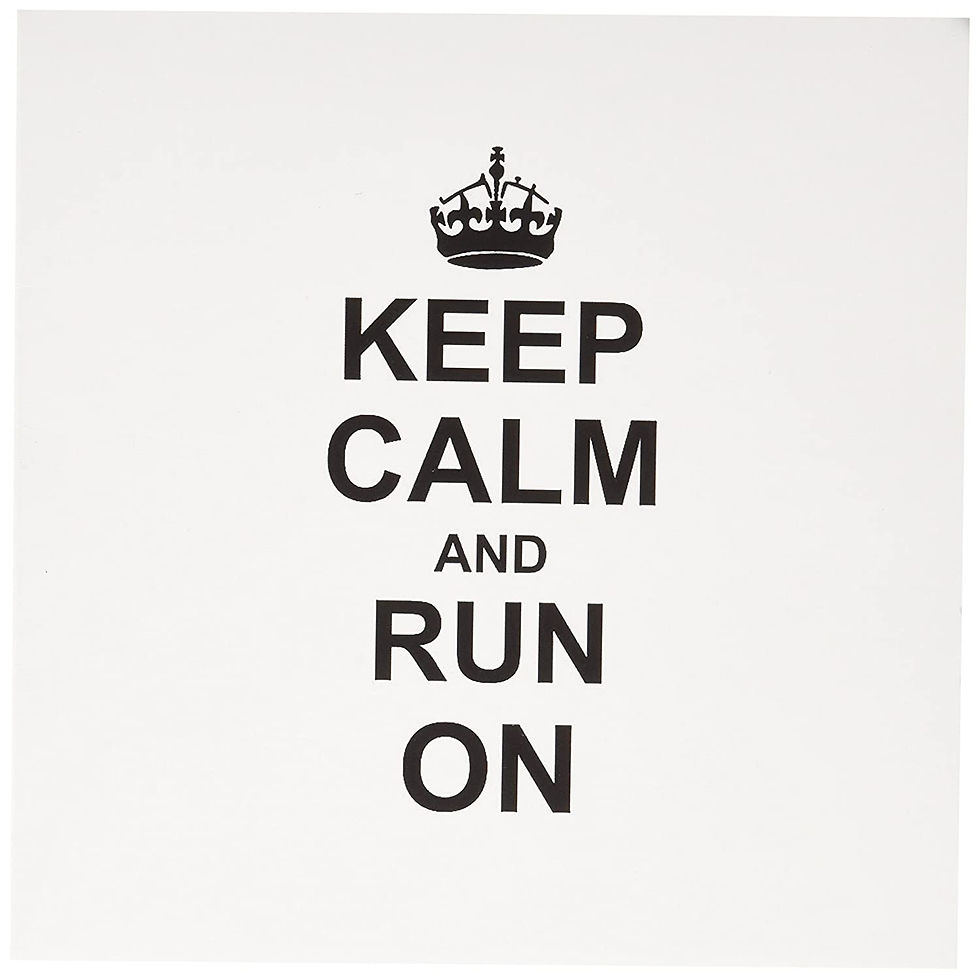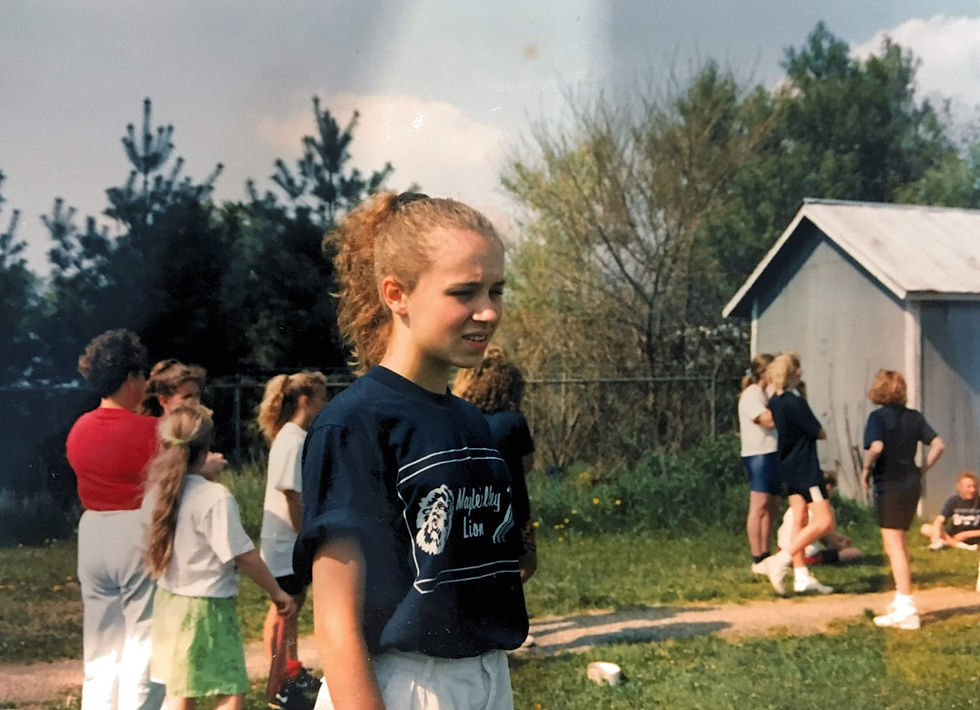Wait. . . I Don’t Want to Anymore; Race Anxiety
- kmurphy21
- Feb 25, 2020
- 4 min read
Last month I was trying to convince someone to sign up for a race.
“It’s fun, you can help pace our other friend”.
She was like “nope, still no. I get too nervous and put too much pressure on myself to perform well. Not fun”.
It made me think about race anxiety, which I honestly had not since college. But I do remember a time when it took all the enjoyment out of racing. In fact, after walking away from my track and cross country scholarship position, (yes, that’s how not fun it became). I did not really race for almost 10 years.
Something I loved, and the sport that gave me confidence and focus throughout middle and high school became straight-up misery in college. Maybe because the stakes got so much higher, and it was for all intents and purposes my job.
My performance on the track paid my college tuition. There were real life consequences for bad races. And my young mind was not prepared. I lacked motivation, mental toughness, and was only minimally invested.
Going into races I felt ill. I knew that I was going to need to push to the point of extreme pain for up to 15 minutes, for why? Best case scenario I held mid-pack, qualified for finals (and yep get to do it again today or tomorrow) and coach would be only mildly pissed. Worst case, I had a poor showing and fell back, or did not make finals and coach would refuse to even talk to me.
A million excuses went through my head before every race. I was shaky and nauseous.
I finally decided after 2 years of NCAA Track and Cross Country, that basically any job would be better. Bye, I went to study abroad in Ireland, bartending was a better job.
In my post-accident racing I have never felt race anxiety. I realize it is because all the pressure is off. No coach holding a scholarship over my head. No expectation to finish in any particular place. I have a day job and career that my race performance has no effect on. My weekend races are not a key part of my identity.
So, did it really take a life-changing accident to cure my race anxiety? No, though it did provide the needed change of perspective. That is what it takes, a change of perspective. I still sometimes get nervous about races, but I can still enjoy them and remember that I signed up for a reason. I don’t throw up. I don’t make excuses.
Talking with other adults about racing recreationally, I find we all tend to use the same few strategies.
First of all planning and visualization are key. Knowing courses and having some idea of what to expect is super helpful. Feeling like you have control because you have a plan takes away a lot of anxiety.
Also, having a plan B for when it goes all Murphy’s Law. If you can look at the worst case scenario and know you will survive anyway also removes a lot of pressure. My husband will not give me the silent treatment, I still get a hug.
And hey, remember results are what you make them. A time or a place is only good or bad if you give it that label. You can reframe any results as a positive, maybe not your best time, but maybe good for conditions. Or maybe an opportunity to learn how to better deal with heat.
I always take a hard race and less than expected results and reframe it as a “mental toughness builder”. My husband and I both do this. On especially snowy speed workdays, or hot long run days, or if we happen to catch some bug just before a race. “Well, that was a mental toughness builder”. I survived, it wasn’t pretty, but did I die?
Another way to take the pressure off and alleviate some of the anxiety is to make a positivity goal. Simply something like; I am going to have fun. Or, I am going to give every kid a high five, or thank every police officer on the route. Be that racer that gives the positive encouragement to someone who really needs it. If that is your goal, who cares what your time is?
My last anxiety reducing tactic is this, another change of perspective. Look at your race as graduation day. You trained to get here, now it is time to celebrate all that work. You earned this day! And most races make sure you feel it, with bands, and spectators, and signs, and surprisingly sometimes actual cheerleaders.
As with so much in life it all comes down to perspective. And as an adult it is just a privilege to be able to race for fun. I take the time to be grateful for my recovery, I am blessed to be capable of this. I have the means (though I do stretch them) to pay for the little vacations that races are for my family. And at the end of the day, my people still love me and are proud of me no matter how fast or slow I race.





Comments